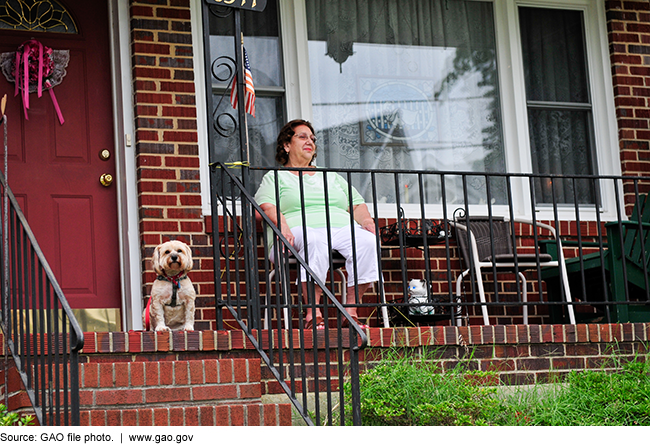Reverse mortgages are an increasingly popular way for senior citizens to tap into the equity in their homes in order to pay bills or improve their standard of living. However, they also have a number of shortcomings and potential risks that may be hidden through misleading marketing.
A new report by the nonpartisan U.S. Government Accountability Office (GAO) concluded that, while reverse mortgages can offer substantial benefits, they also come with considerable costs and are highly complex. In addition, the report found a number of inaccurate claims are commonly made by lenders marketing reverse mortgages, potentially misleading homeowners about the product they are obtaining.
Reverse mortgages, which are officially known as Home Equity Conversion Mortgages (HECM), were authorized by Congress as a way for seniors to avoid economic hardships. In essence, they allow homeowners aged 62 and older to borrow against the equity in their homes and receive it in the form of an annuity, line of credit, lump sum payment or other options they may select.
Closing costs can be high
However, there are several things seniors need to be aware of before entering into a reverse mortgage. The first is the cost - HECMs come with high loan origination and mortgage insurance fees. In an example cited by the GAO, a homeowner taking out a reverse mortgage on a $300,000 home could pay $11,000 in loan origination and mortgage insurance fees up front. These may escape the homeowner's notice because they are typically paid out of the reverse mortgage loan itself, as opposed to being an "out of pocket" expense.
There are ongoing fees as well. Lender servicing fees can be as high as $35 a month over the life of the loan. The Federal Housing Administration, which guarantees the loans, also charges a monthly premium at an annual rate of 0.5 percent. Finally, the loan also carries an interest charge, which for most HECMs is an adjustable rate.
Inaccurate claims frequently made in marketing
The GAO report also identified six potentially misleading claims that are frequently made by lenders marketing HECMs. They are:
"Never owe more than the value of your home." This may not be true because the homeowner or heirs would have to pay the full loan balance if they chose to keep the home at the time the loan came due. This was identified as the most common inaccurate statement and one that HUD itself once made in a letter to HECM lenders, but later corrected.
Suggestions that a reverse mortgage is a "government benefit." While the FHA insures reverse mortgages, HECMs are loans that must be repaid, usually through the equity in the home itself, and is not a benefit.
Claims that a reverse mortgage provides lifetime income or that the borrower can't outlive the loan. Although borrower may choose to opt for annuity payments, those will terminate once the borrower vacates the home, such as when entering an assisted living facility. Also, the specified term of the monthly payments may end while the homeowner is still alive.
"Never lose your home." The HECM borrower could still lose the home for failure to pay property taxes or hazard insurance, or for failing to maintain the property.
Misrepresenting government affiliations. Some lenders have been found to use official-looking logos, names or other means to imply they represent a government agency, when they do not.
The GAO has made a number of recommendations to address these issues, which federal banking regulators have accepted. HUD and the FTC have not commented on them, however.





